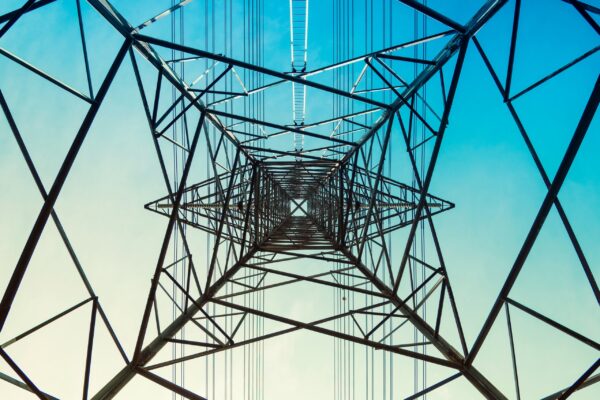
Ask an expert: How to become more energy efficient
We sat down with Laura Clare Davies, one of our expert Client Optimisation Managers, to ask her about how businesses are working on their energy efficiency.
As we move towards a low-carbon future, businesses must consider not only how much energy they are using, but also when and how they are using energy.
At Inspired, we’re getting more requests for support from businesses that are looking to optimise their energy usage – because it can be complex to ensure that you’re using energy in the best way for your business. So we sat down with Laura Clare Davies, one of our expert Client Optimisation Managers, to ask her about how businesses are working on their energy efficiency.
Q) For businesses that are just beginning to think about optimising their energy consumption, what’s the best way to get started?
“You can’t manage what you don’t measure – so we always advise businesses to start measuring their energy consumption before they begin their optimisation journey. You need to understand where, when and how you’re using energy now, as this information will form the basis of a well-informed optimisation plan.
Measuring your meter data is fine as a starting point, but if you have sub-meters in place then measuring at sub-meter level will give you a much more detailed view of how your business is currently using energy. An Energy Management System (EMS) can also be really useful in helping you to visualise your current consumption, so that you can begin to identify areas for improvement.”
Q) What’s the best way for businesses to identify areas for greater energy efficiency within their organisation?
“The very best way for businesses to find areas for improvement when it comes to energy efficiency is by undertaking an energy site audit. If your organisation is required to comply with the Energy Savings Opportunity Scheme (ESOS), then you should have already carried out a site visit. Your latest ESOS report should therefore contain plenty of practical recommendations on how you can improve your energy efficiency across your site(s).
If it’s been a while since your ESOS site audit was carried out, or your business isn’t affected by ESOS, then it’s worth investing in a site audit from an external, low-carbon specialist before you start to optimise your energy usage. They are often relatively low-cost to undertake, and having an independent, expert eye on site can help you to identify areas of inefficiency and waste that your team may have missed.”
Q) What is the most common challenge businesses face when trying to improve their energy efficiency?
“Many energy managers struggle to gain internal buy-in for energy efficiency projects, because if a business has budget to spare, it’s often used to grow the business rather than improving its energy efficiency. This has been a challenge for decades now, and even though more businesses are setting ambitious sustainability targets, we’re still hearing from energy professionals that are finding it difficult to get support for energy efficiency from senior teams.
“Of course, in the current economic climate, it’s understandable that businesses are being cautious in their spending. So when we’re working to improve an organisation’s energy efficiency, we usually start with low-cost, quick-win solutions, such as switching to LED lighting. Then as the business begins to see savings from these solutions, it’s easier for us to build a business case for reinvesting these savings in further energy efficiency measures.
“There are also plenty of funding opportunities available to businesses that are looking to improve their energy efficiency – like the Government’s Super Deduction Tax, which enables companies to claim up to 130% tax allowance on investment in particular energy efficiency technologies. So businesses might find that with the funding support available, energy efficiency measures that they may have thought were out of reach are financially viable for their organisation.”
Q) Finally, we’re now in Triad season – so how can energy efficiency and on-site generation help businesses to avoid excessive energy bills?
“We always tell businesses that the best way to reduce their Triad costs is to improve their energy efficiency – because if you’re using less energy overall, you should use less energy during Triad periods, too. So focusing on energy efficiency is essential, particularly for businesses that cannot turn down or shift their consumption away from peak periods.
Businesses that can adjust their consumption can mitigate the impact of Triads on their energy costs by either switching off completely or simply turning down their consumption as much as possible. Any small amount that they can turn down will make a difference! Of course, those that have a generation asset on-site can also switch to on-site generation during peak periods to avoid Triads.
However, organisations need to know when Triads are likely to occur in order to effectively avoid them! That’s why we recommend that businesses sign up to our free Triad Alert service. Our energy specialists monitor key signals to provide our Triad Alert customers with advance warning of when a Triad is likely to occur, so they can shift or reduce their consumption or switch to on-site generation and avoid excessive winter charges.”
Please note: The information in this article is dated November 2021 and Ofgem has released further updates to the Targeted Charging Review (TCR) and Triad avoidance since this time. Updates for 2023 are summarised in this article here: Targeted Charging Review (TCR) Upcoming Changes for 2023.
Put your energy efficiency questions to our experts
Our optimisation experts are always on hand to advise you on how your organisation can become more energy efficient – whether you need external support to help you to build a business case for new efficiency measures or you’re looking for tech that can help you to identify the next steps you should take in your energy efficiency strategy.
To talk to one of our experts today, call us on 01772 689 250 or email [email protected].










